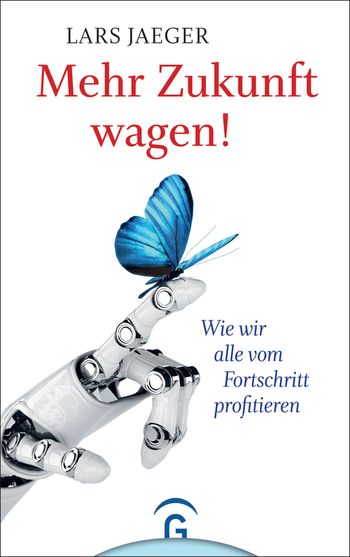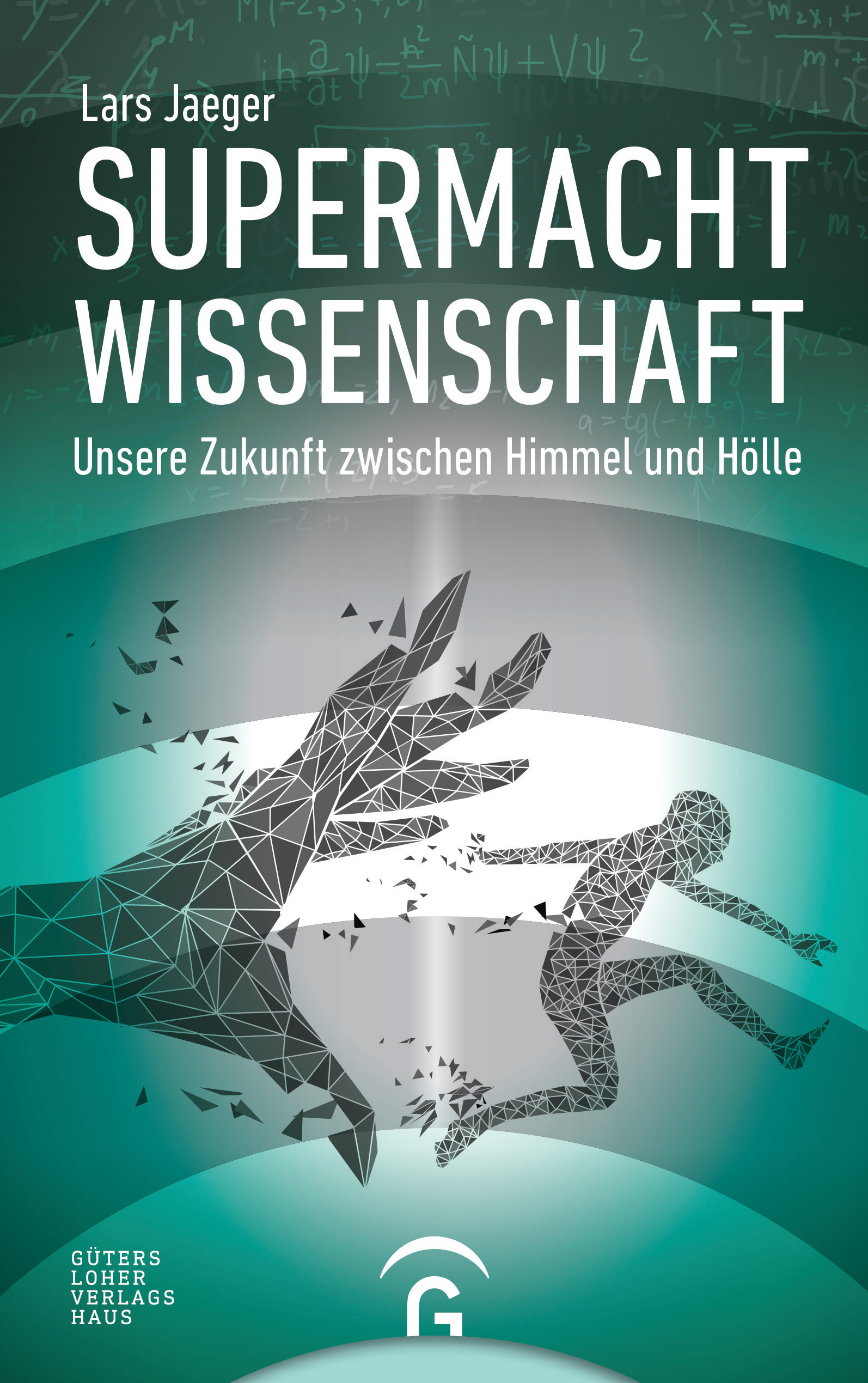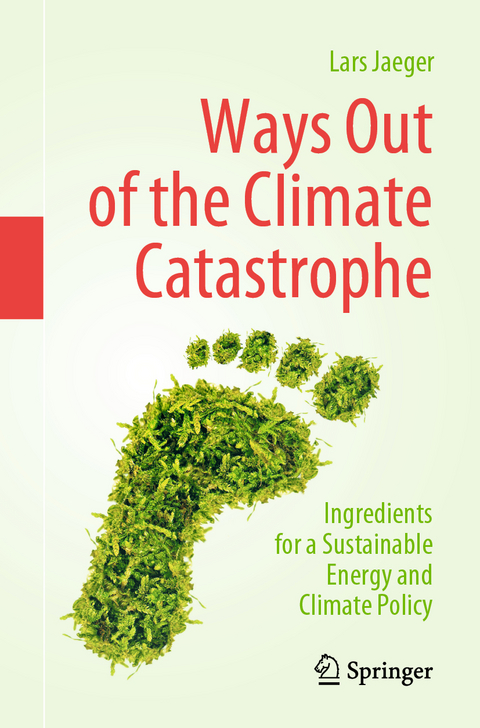Two books: The Stumbling Progress of 20th Century Science – and – Emmy Noether

The Stumbling Progress of 20th Century Science – How Crises and Great Minds Have Shaped Our Modern World
The 70 years from 1880 to 1950 witnessed the final ascent of humankind into the modern age. Historically, this period is characterized by deep political, social and economic crises. However, parallel to this and much less known in the public, rational scientific thinking also experienced the darkest and deepest crisis of its own history. All the great modern scientific discoveries like quantum theory, genetics and neurology are products of this. Ground-breaking discoveries, profound crises, revolutionary thoughts, refutation of previously unshakable beliefs – these years are marked by scientific achievements of numerous great minds, who overturned our understanding of the world, of space, time and infinity, of life, logic and calculability almost overnight. The “intuitive genius” of these pioneers still forms the foundation of today’s scientific thinking and technological progress. In fact, tackling and overcoming those deep scientific crises shaped our modern life like nothing else. The resulting reorientation of our understanding of nature and ourselves allowed ancient philosophical questions to appear in a new light: “What is reality?”, “What can we know about the world?” or “What is man’s place in nature?”. The most exciting period in the history of science is retold here in an entertaining way.
ISBN: 978-3-031-09617-4
Emmy Noether – Ihr steiniger Weg an die Weltspitze der Mathematik
She has a razor-sharp mind, struggles for recognition throughout her life and refuses to be swayed: Emmy Noether (1882-1935), probably the most important female mathematician ever, is strong enough never to do what society expects of a woman. Despite much resistance, she manages to fight her way to the top of her discipline with groundbreaking work.
Emmy grows up in a liberal Jewish family in Erlangen. After passing her exams to become a language teacher, she took up mathematics studies with special permission, earned her doctorate and, thanks to her brilliant achievements, stepped out of the shadow of her father, a well-known mathematician. In 1915, Emmy Noether accepted a call to Göttingen, where she worked alongside the luminaries of her field, but without a salary or an academic position – because she was a woman. With Noether’s theorem, which is still valid today, she revolutionized mathematical thinking in physics, then became a pioneer of modern algebra. Highly gifted students from all over the world flock to the extraordinary professor, who by now enjoys international renown. In 1933 she was expelled from the university because she was Jewish. She emigrated to the USA, taught in Pennsylvania, close to Albert Einstein, who held the brilliant thinker in high esteem. Fate strikes when she has to undergo cancer surgery …
ISBN: 978-3-87800-161-4
Ways out of the Climate Catastrophe
Floods, species extinction, migration, droughts, super tornadoes – climate change is no longer a threat looming on the horizon but has long since become part of our everyday lives. Limiting the emerging and worsening climate changes is one of the most important challenges of our time.
All human induced climate impacts can be traced back to a single factor: Energy. is book provides a comprehensive and readable introduction to the interplay between energy and climate, which also includes the fields of technology, economics, and politics. At the same time, the issue is highly complex and can only be understood in all its details by expert scientists, meaning that the facts are often poorly presented in the political discussion about climate. To put it simply: If we want to stop and even reverse the current climate trends, we need to find answers to the following three questions:
- How exactly does our existing way of consuming energy affect the climate?
- What options are there for generating energy without negative climate effects, and what do these mean for our lives?
- What technological advances will directly help us to achieve this in future?
In a non-alarmist yet entertaining manner, the book highlights the key determinants of global energy supply. Readers will come to appreciate the crucial facts about “energy and climate”, will be up to date with the latest scientific and technological knowledge, and will understand the global political and economic framework that we need to consider when designing an appropriate future energy and climate policy. At the same time, the author conveys a clear and optimistic message: We already have the technical capabilities (which will be further enhanced in the future) to reverse the devastating climate trends without significantly limiting prosperity. e obstacles lie primarily in economic and political “constraints” and particular conflicts of interest.
A very important book that explains one of the most essential questions of our time – how we can master climate change by an energy transition – with scientific precision and clear words. Georg Kell, founder and former Executive Director of the United Nations Global Compact.
How the scientific virtues came into being
Clever, philosophical, captivating
Published on September 7, 2020

After the dark Middle Ages, a new way of thinking is gaining ground, and with it, ever greater knowledge is entering people’s minds. The book describes cleverly and stirringly how scientific findings and technological achievements have dramatically changed the world in the past 500 years. It quickly becomes clear: The triumph of science is accompanied by the development of four essential intellectual virtues that make up our thinking and that must be defended, especially in times of “fake news”. A success story of thinking that could not be told in a more lively and exciting way!
An enlightening and theses-rich book about the power of the new technologies
and the threat of man’s impotence against them
German edition appeared in September 2019

Daring more future – How we all benefit from technical progress is a confrontation with the impending technological upheavals in all sorts of different areas that lead to what the author calls „The Human Crisis“.
ISBN: 978-3-579-01480-7
- Further information at link to purchase platform
- Blog on the book
- Interview about the book (Video in German)
- Interview about the book (Text in German)
- Trailer of the book (in German)
This book has an encouraging message: we can positively shape the rapid scientific and technological progress we are witnessing now. We need have no fear of digitisation, nano- and quantum technology or bioengineering. On the contrary, these new technologies do not mean the end of the world, but the future of mankind! However, the world historical upheaval we are facing will not only massively change our self-image our understanding of the meaning of our existence, but also man himself. It is therefore important to know these changes and to shape them. This book tells us how this can be achieved.
- Why we do not have to fear science and technologies
- Provides orientation in ethical and moral questions dealing with the new technological opportunities
- Pledges for a new philosophical spirituality of the future
A narrative book on new quantum technologies that might change everything –
English version published in January 2019

The Second Quantum Revolution – From Entanglement to Quantum Computing and Other Super-Technologies takes the reader on an exciting journey into our immediate technological future. A book that will make you shake, which enlightens and provides orientation
ISBN 978-3-662-43399-7
This book tells the story of the second quantum revolution which will shape the 21st century as much as the first quantum revolution shaped the 20th century. It provides unique orientation in today’s discussion and the latest progress on the interpretation of quantum physics and its further technological potential.
As you read this book the first prototypes of this revolution are being built in laboratories worldwide. Super-technologies such as nanotechnology, quantum computers, quantum information processing, and others will soon shape our daily lives, even if physicists themselves continue to disagree on how to interpret the central theory of modern physics. The book will thus also touch on the profound philosophical questions at the heart of quantum mechanics.
Book on our our technological future which has already begun (in German) – published in
August 2017

Superpower Science – Our future between heaven and hell takes the reader on an exciting journey into our immediate technological future. A book that will make you shake, which enlightens and provides orientation
ISBN 978-3-662-43399-7
- More Information (in German)
- Blog on the book
- Video on the Book (in German)
- Interview on the book (in German) Buch
- Interview on CRISPR (in German)
- Interview on key technolgies (in German)
Meat out of 3D-printer, robots the size of viruses, genetically designed children, 120 year olds that look like 40, artificial life – all this can become reality already in our life time. The trend is worrying: Up to now man formed nature according to his desires. But modern technologies can turn the rules upside down: Then they form us. Algorithms, that decide on life and death, genetic alterations and artificial intelligence that redefine human life. Our every day life, our very human existence are changing radically. The question is: Do we want that? Only if we understand what is happening, can we make educated choices.
Book on the interplay of science an spirituality (in German) – published in September
published in 2016

„Science and Spirituality“ considers scientifc and spiritual thinking and endeavours as two independent, albeit connected and each other enrichening paths towards knowledge, which have influenced each other broadly in their respective develpmental histories.
ISBN 978-3-662-43399-7
In his book Lars Jaeger follows an exciting search for traces of connection between two seemingly contrasting world views – and the results are impressive: science and spiritual traditions of thought have far more in common than their contrasting opposites and essential differences suggest. What unites both approaches is the search for the world’s great mysteries and possible explanations thereof. Is there perhaps a common trait in this search? Are the physicists eventually going to explain the origins of the world? Will we learn someday how consciousness emerges from the network of neurons in our brain? Will we know what the ultimately smallest building blocks of matter are? And if so, what does that all mean for us, for our self-perception and our experience of the world? How does it affect our spiritual experience? And finally: What does all this mean for our central question of what the „meaning of this all“ is? The way scientific knowledge is obtained and the key questions of spiritual experiences are linked within an exciting interplay. This is great stuff for an interdisciplinary journey that will draw the reader into the spell.
Is there a form of spirituality without self-deception that is not sticky or kitschy and where one does not lose one’s dignity as a critical, rational subject? Many people today are thinking about the possibility of a secularized spirituality that does not deny mortality and can be brought in line with the results of modern science. Lars Jaeger makes a contribution: He leads the reader on a journey to similarities and contrasts of scientific and spiritual thinking that is as entertaining as it is profound. Highly topical, well informed.
Prof. Thomas Metzinger, University of Mainz, Germany, Author of The Ego-Tunnel
Book on the universal history of science (in German) – published in September 2014

With „The Natural Sciences – A Biography „Lars Jaeger presents a seminal piece of work, which presents even readers with no scientific background in a clear and comprehensible way the history of science from its origins to today. Not only illustrates the book, how much Western thinking has been influenced by the respective level of scientific understanding; The author also points out, how important a good understanding of the development of the natural sciences is for shaping our future. With ever more rapid technological advances taking place today significant changes in our thinking and living are taking shape, which in turn raise new epistemological and ethical questions.
Lars Jaeger provides both: Guidance and exciting reading. In describing the „life“ of the natural sciences in all its drama he at the same time succeeds to convey something fundamental: the great magic of knowledge. A book for diving in to be read from beginning to end!
ISBN 978-3-662-43399-7
- More Information (in German)
- Discussion in the German version of „Scientific Amercian“ („Spektrum der Wissenschaft“)
- The History of Natural Sciences, told as a great adventure on the path to knowledge
- Informative and at the same time entertaining and exciting
- As in a biography, the reader gets to know the natural sciences as an organism, which grows, becomes independent, and develops and develops openly with respect to its future
- The book reveals the partly startling cross-connections and interdisciplinary links, especially to philosophical and social questions
- Author is a maverick: Physicist, Mathematician, Philosopher, Entrepreneur, Lecturer
A wonderfully written and very knowledgeable book, that helps to reduce the intolerable ignorance with respect to the history of science. Anyone who wants to understand the present with its technical possibilities, must know the path, which science has prepared. With this narative this can easily be achieved.
Ernst Peter Fischer
Why we need to understand science
Our society today unfolds in complete dependence on the scientific and technological progress. So it is surprising how underdeveloped the awareness of society’s decision makers and intellectuals is on where science stands in its various fields. Especially, as in the context of our rapidly increasing knowledge about nature and the ensuing technological possibilities are forming an outline of a new epoch-making „Leap of Mankind“. We thus need a good knowledge of the foundations of science widely in our society.
But can the abstract statements and complicated scientific theories such as quantum mechanics be explain to a wide audience? Lars‘ answer is „yes“. And the best way to do so is to convey the historical development of these theories. When we consider the respective specific issues and questions that led to the paradigms of modern science, the most abstract nature theories reveal themselves as extremely concrete. At the same time looking at the history of science we gain an understanding of the interplay between scientific progress and social developments. Therefore, the book provides not only a useful guidance for the various challenges of modernity, but it also opens up an entirely new view into the distance. In a future that is imminent.
———————————————————————————————————————————————————————
Alternative Beta Strategies and Hedge Fund Replication (Wiley, 2008)
Risk Management of Alternative Investment Strategies (Financial Times Prentice Hall, 2002)




